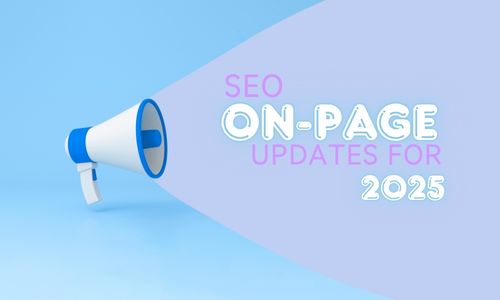In the ever-evolving world of SEO, on-page optimization continues to be the backbone of any successful strategy. While off-page efforts like link building, citations, and brand signals play a supportive role, it’s the on-page elements that you have complete control over – and that’s where true SEO success begins.
Mind Spark Technologies has shared a blog that explains the “SEO On-Page 2025 Updates” in a simple and clear way. The goal is to help readers easily understand the latest changes and how to apply them to improve their website’s search rankings. It’s designed for everyone, even those new to SEO.
Importance of On-Page SEO
On-page SEO is all about optimizing individual pages of your website to help search engines understand your content better and improve the user experience. It includes everything from the content itself to how your code is structured, how fast your page loads, and how easy your site is to navigate.
By focusing on these elements, you’re making your site not only more visible in search results but also more helpful and accessible to real users.
Why It’s Crucial in 2025
Search engines like Google have grown smarter. Today, it’s not just about inserting keywords — it’s about delivering value, speed, clarity, and accessibility. Your on-page SEO decisions impact on how users interact with your site and how search engines rank your pages.
Off-page SEO can bring people to your site, but on-page SEO decides whether they stay, engage, and convert.
Key On-Page Elements to Optimize
- Content Optimization
- Titles & Headers: Use clear, keyword-relevant H1, H2 tags.
- Meta Descriptions: Write compelling summaries to improve click-through rates.
- Body Content: Make it original, useful, and well-organized.
- Internal Links: Guide users through relevant pages on your site.
- External Links: Add value with credible references.
- Images: Use proper alt text, file names, and compression for faster load times.
- User FAQs & Complaints: Address real concerns in your content.
- Technical Optimization
- Page Speed: Use caching, defer scripts, and enable lazy loading.
- Clickable Element Names: Make sure every button and link is clearly labeled.
- Schema Markup: Help search engines understand your content with structured data.
- Canonical Tags: Prevent duplicate content issues.
- Meta Robots Tags: Control what gets indexed.
- Mobile Optimization: Ensure smooth performance on all screen sizes.
Don’t Over-Optimize
Some businesses go overboard trying to perfect every SEO detail. But over-optimizing, like stuffing keywords or adding too many internal links – can reduce content quality and hurt rankings. Always aim for balance. Your content should serve real users first, not just algorithms.
On-page SEO is where your strategy starts. It ensures your site is clear, fast, helpful, and accessible—even for users with disabilities or slow internet. By following best practices and focusing on real user needs, you’ll set your website up for long-term search success in 2025 and beyond
Reference Taken: https://searchengineland.com/what-is-on-page-optimization-436921

